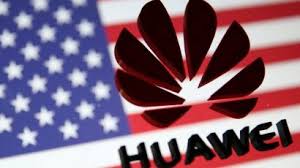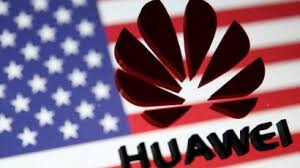
In a fresh salvo at the Chinese tech giant Huawei, prosecutors of the United States have brought charges of fraud against a Chinese professor who allegedly had stolen technology from a California company and handed it over to Huawei.
According to court documents, the accused professor Bo Mao was initially arrested by US authorities on August 14 in Texas and was subsequently released on a bond of $100,000 after six days. But before his release, Mao had to agree to participate in the case against him in New York.
On August 28, Mao pleaded not guilty in US District Court in Brooklyn on allegation of conspiracy to commit wire fraud.
The charges brought against Mao claims that the professor reportedly had entered into an agreement the California tech company, which has not been named, to acquire a circuit board and had declared that he had needed it for academic research.
The charge against Mao is that an he had played a role in an alleged scheme by an unidentified Chinese telecommunications conglomerate, which has been identified as Huawei by sources, of attempting to steal the technology. The involvement of Huawei in the case is also indicated by a court document.
Mao became a visiting professor at a Texas university last fall and is originally an associate professor at Xiamen University in China. His name first gained prominence when he was found to be associated in a Texas civil case that was being fought between Huawei and Silicon Valley startup CNEX Labs Inc.
CNEX and a former Huawei employee, Yiren Huang, were accused of stealing trade secrets from the Chinese telecommunication equipment maker in December 2017. CNEX was founded in 2013 and it is alleged Huang, who was a former engineering manager at a US Huawei subsidiary, played an important role in the founding. The startup was launched just three days after Huang had resigned from Huawei.
As a part of the counterclaims in the case, CNEX has alleged that one of its circuit boards was sought by Mao as part of his research project and after the circuit board was sent to the professor, he shared used it in a study that also involved Huawei.
That case ended in June with a “take nothing” verdict. While the jury held that no trade secrets were stolen by CNEX, it ruled that his employment contract had been violated by Huang because he had failed to notify Huawei about the patents that he had accrued within a year of leaving the company. Further, the jury did not award any damages to Huawei as it found that the Chinese company had not been harmed in the entire case. On the contrary, the jury ruled that a CNEX trade secret had been misappropriated by Huawei but did not award any damages in that issue also.
But now the the CNEX case has been revived by US prosecutors who have an case against Huawei in Brooklyn over alleged bank fraud and violation of US sanctions on Iran.
And even though the company has not been named or charged in the latest case, Huawei has said that the charges brought against Mao is viewed by it to be the latest instance of “selective prosecution” against the company by the US government.
(Source:www.reuters.com)
According to court documents, the accused professor Bo Mao was initially arrested by US authorities on August 14 in Texas and was subsequently released on a bond of $100,000 after six days. But before his release, Mao had to agree to participate in the case against him in New York.
On August 28, Mao pleaded not guilty in US District Court in Brooklyn on allegation of conspiracy to commit wire fraud.
The charges brought against Mao claims that the professor reportedly had entered into an agreement the California tech company, which has not been named, to acquire a circuit board and had declared that he had needed it for academic research.
The charge against Mao is that an he had played a role in an alleged scheme by an unidentified Chinese telecommunications conglomerate, which has been identified as Huawei by sources, of attempting to steal the technology. The involvement of Huawei in the case is also indicated by a court document.
Mao became a visiting professor at a Texas university last fall and is originally an associate professor at Xiamen University in China. His name first gained prominence when he was found to be associated in a Texas civil case that was being fought between Huawei and Silicon Valley startup CNEX Labs Inc.
CNEX and a former Huawei employee, Yiren Huang, were accused of stealing trade secrets from the Chinese telecommunication equipment maker in December 2017. CNEX was founded in 2013 and it is alleged Huang, who was a former engineering manager at a US Huawei subsidiary, played an important role in the founding. The startup was launched just three days after Huang had resigned from Huawei.
As a part of the counterclaims in the case, CNEX has alleged that one of its circuit boards was sought by Mao as part of his research project and after the circuit board was sent to the professor, he shared used it in a study that also involved Huawei.
That case ended in June with a “take nothing” verdict. While the jury held that no trade secrets were stolen by CNEX, it ruled that his employment contract had been violated by Huang because he had failed to notify Huawei about the patents that he had accrued within a year of leaving the company. Further, the jury did not award any damages to Huawei as it found that the Chinese company had not been harmed in the entire case. On the contrary, the jury ruled that a CNEX trade secret had been misappropriated by Huawei but did not award any damages in that issue also.
But now the the CNEX case has been revived by US prosecutors who have an case against Huawei in Brooklyn over alleged bank fraud and violation of US sanctions on Iran.
And even though the company has not been named or charged in the latest case, Huawei has said that the charges brought against Mao is viewed by it to be the latest instance of “selective prosecution” against the company by the US government.
(Source:www.reuters.com)





